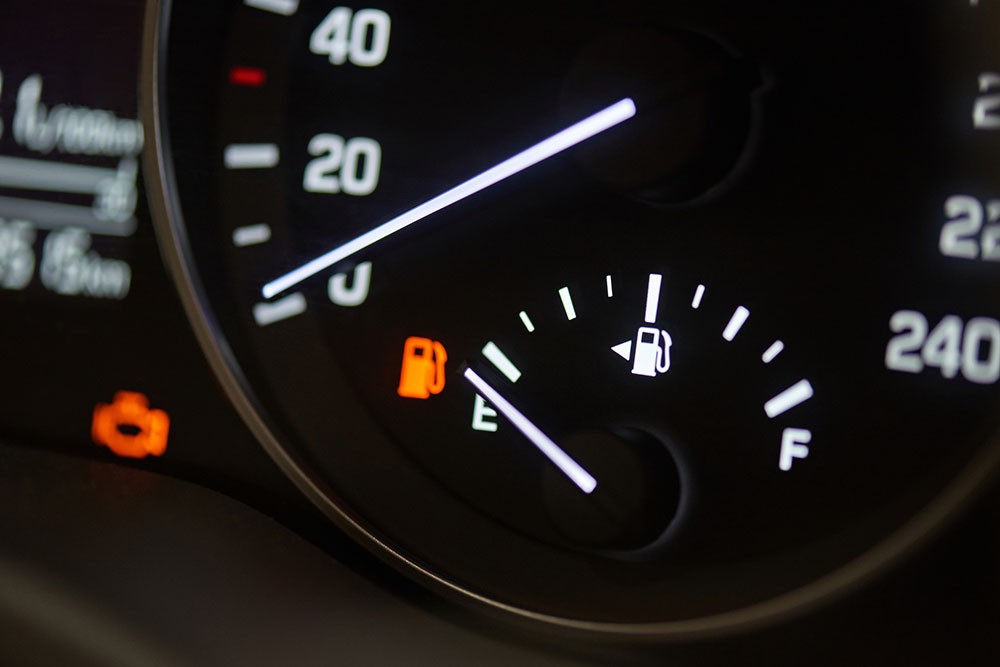
Fuel prices are increasing just as family road trips and summer vacations are on the horizon.
How can you contain the cost of travel to keep the family budget in check?
Fortunately, there are several ways to maximize your vehicle's fuel efficiency and keep more money in your pocket while exploring the open road. Understanding fuel efficiency begins with preparing your vehicle before you even hit the highway.
Vehicle maintenance plays a crucial role in optimizing your fuel consumption. Gear up for summer and keep some coins in your pocket with these fuel-saving tips:
1. Check your tire inflation and treadwear
Underinflated tires are not the way to start a road trip. Not only does low tire pressure put you at risk for a blowout, but it also decreases your vehicle’s fuel efficiency.
Underinflated tires create more rolling resistance, which means your engine works harder and burns more fuel. Check your tire pressure before departure and maintain the recommended pressure for your specific vehicle.
Don't forget to also check tread depth and look for any cracks, bulges, or other signs of wear that may necessitate a tire replacement.
2. Replace engine air filters
Clean air filters allow for optimal airflow to your vehicle’s engine, which prevents it from working harder to burn fuel. Also, regularly replacing your car’s air filters potentially extends the lifespan of the engine, as a clean filter helps protect against wear and damage.
3. Stay current on routine oil changes
Staying on top of your car’s oil changes helps improve fuel efficiency. Fresh oil and proper fluid levels reduces friction and ensures proper lubrication, requiring less energy to operate.
Routine oil changes contribute to a more efficient engine and improve fuel economy.
4. Get a climate control system inspection
Ask your service advisor to make sure your vehicle’s climate control system–the air compressor and other related parts– is operating efficiently. Not only will your family thank you for cool air on hot summer drives, but a well-maintained system places less strain on your vehicle’s engine.
5. Avoid steering problems
Wheel alignment can significantly impact fuel efficiency. Get it checked whenever you have your tires rotated, balanced, or replaced.
Properly aligned wheels reduce rolling resistance, which in turn allows your car to move efficiently and use less fuel. Misaligned wheels create drag, which uses more fuel because the engine has to work harder.
6. Inspect brakes and brake system
Do you hear squealing when pressing the brake pedal? Does the vehicle pull to one side when coming to a stop?
Problems with brake pads, rotors and other brake system components are crucial to safe driving. They also impact fuel economy.
Brake pads that drag, even slightly, can reduce gas mileage. Also, fresh brake fluid helps improve braking performance and, in turn, fuel economy.
7. Test your battery charge
When was the last time your car’s battery was replaced? If it’s been more than three years, consider having it tested or replaced before traveling.
A weak battery requires the engine to work harder, ultimately using more fuel. Weak batteries also tend to malfunction without warning and may leave you stranded hours from a repair facility.
8. Replace worn spark plugs
Spark plugs and batteries work to help keep your vehicle operating at peak performance. Worn spark plugs can cause engine misfires and incomplete combustion, making it harder to start the engine and reducing overall fuel efficiency.
Have spark plugs and the starting system checked before leaving town this summer.